19 min to read
In today's fast-paced digital world, marketing has become more important than ever before. With the rise of online platforms, businesses are now able to reach a wider audience and target their ideal customers more effectively. However, with so many different types of online marketing available, it can be overwhelming to decide which strategy to use.
In this blog post, we'll explore eight of the most effective types of online marketing that can help you reach your marketing goals. From social media marketing to email marketing, we'll cover it all so that you can decide which strategy is right for your business. So let's dive in!
Influencer Marketing
Influencer marketing has become a popular type of online marketing in recent years. It involves collaborating with social media influencers or bloggers who have a large following and influence over their audience. For instance, an influencer marketing firm in Australia can assist you in executing successful influencer campaigns, ensuring swift and widespread brand recognition in the online realm. These influencers can help promote a brand's products or services by creating content that showcases them to their followers.
This type of marketing is effective because it allows brands to reach a specific target audience and create authentic connections with consumers. It also helps build brand awareness and trust, as consumers are likelier to trust recommendations from people they follow and admire. With the rise of social media platforms, influencer marketing is a powerful tool that can help businesses achieve their marketing goals.
Influencer marketing constantly evolves as social media platforms introduce new features and consumer behaviors shift. Here are some of the key trends in influencer marketing as of 2023:
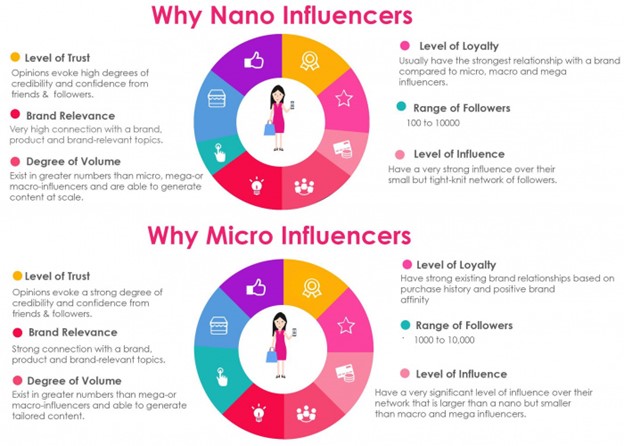
- Micro and Nano Influencers: Brands recognize that having a smaller but more engaged and niche following can sometimes be more valuable than having millions of followers. Micro (10k-100k followers) and nano (1k-10k followers) influencers typically have higher engagement rates and their followers often perceive them as more authentic and trustworthy.
- Platform Diversity: While Instagram continues to be a popular platform for influencer marketing, other platforms like TikTok, LinkedIn, and even newer ones are also becoming significant. Brands are diversifying their strategies to engage audiences on various media where they spend their time.
- Video Content: Video content, especially short-form videos (like those popular on TikTok and Instagram Reels), continue to grow in popularity. They offer an engaging way to deliver messages and are especially popular among younger demographics.
- Social Commerce: With the integration of shopping features into social media platforms, influencers can now directly drive sales. This blurs the line between social media marketing and e-commerce.
- Values Alignment: Consumers increasingly expect brands and influencers to share their values and take stands on social issues. Influencers who are authentic and transparent about their values can drive deeper engagement with their followers.
- Virtual and AI Influencers: AI-powered influencers, like Lil Miquela, are becoming more prevalent. These virtual influencers can be entirely controlled by a brand, avoiding some of the risks of working with human influencers.
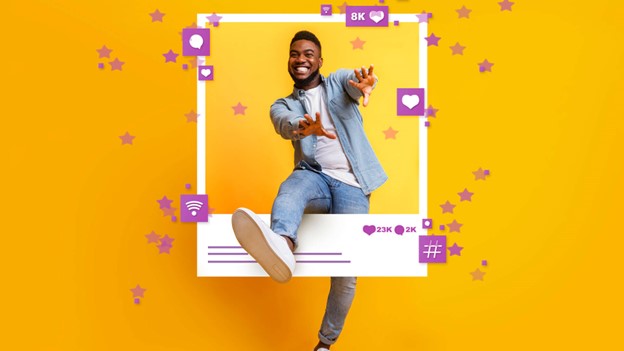
AI can impact influencer marketing in several ways:
- Influencer Discovery and Selection: AI can help brands identify influencers whose followers match their target audience, predict the potential impact of collaborating with a particular influencer, and assess whether an influencer's followers are genuine.
- Content Optimization: AI can analyze which types of content generate the most engagement and help influencers optimize their content strategies. It can also help in creating personalized content for different segments of an influencer's audience.
- Performance Measurement: AI can measure the impact of influencer marketing campaigns more accurately, looking at not just likes and comments but also changes in brand sentiment, direct and indirect conversions, and other metrics.
- AI-powered Influencers: As mentioned above, brands can create AI-powered virtual influencers. While these influencers may lack the authenticity of human influencers, they offer greater control and can be programmed to embody the brand's values and aesthetics perfectly.
AI-powered influencers, sometimes called virtual or CGI influencers, are purely digital personas created using cutting-edge technology. Through advanced computer-generated imagery (CGI) and artificial intelligence, these digital personalities are brought to life, residing exclusively in the digital realm.

An excellent example of an AI-powered influencer is Lil Miquela. Lil Miquela is a virtual character created by the Los Angeles startup Brud. She has millions of followers on Instagram, where she shares images and stories of her life just like any human influencer would. Despite being entirely fictional, she interacts with her followers, posts pictures with other influencers has a backstory, and expresses opinions on social issues. The success of Lil Miquela has inspired the creation of many other CGI influencers, such as Shudu and Imma.
Another example is the virtual influencer Noonoouri, a wide-eyed, Paris-based character who collaborates with high-fashion brands like Dior and Versace. Despite not being a real person, Noonoouri has a strong influence in the fashion industry and is followed by many real-life fashion influencers.
AI-powered influencers like Lil Miquela and Noonoouri allow for more control over messaging and branding since their entire existence is crafted and controlled by their creators. They can embody brand values and aesthetics perfectly and be anywhere and do anything, giving them a distinct advantage over their human counterparts. However, the lack of authenticity and potential for manipulation raise ethical considerations that are still being explored.

- Deepfakes and Synthetic Media: Though ethical concerns exist, AI can also create deepfakes or synthetic media. This could allow influencers to create more content in less time or appear in multiple places simultaneously.
Social Media Marketing
Social media marketing has revolutionized the way businesses connect with their target audience. By utilizing social media platforms such as Facebook, Instagram, Twitter, and LinkedIn, companies can effectively reach a wide range of users and promote their products or services. This form of marketing involves creating engaging content, running targeted ad campaigns, and fostering interactive communication with customers.
Social media marketing allows businesses to build brand awareness, engage with followers, drive website traffic, and generate leads or sales. With the ever-growing presence of social media in people's lives, mastering social media marketing has become essential for businesses to stay competitive in the digital landscape.
Social media marketing continues to evolve as platforms introduce new features and consumers' online behavior changes. Here are some key trends in this space:
- Social Commerce: Social media platforms have integrated shopping features, making it easier for users to buy products directly from their feeds. For example, Instagram's 'Shop' feature allows businesses to tag products in their posts and stories, letting users purchase without leaving the app.
- Video Content: Video, particularly short-form videos like TikTok clips and Instagram Reels, continues to dominate social media. Brands are using these features to share engaging stories and promote their products.
- User-Generated Content (UGC): Brands leverage content created by their customers or followers to build trust and engagement. UGC can range from reviews and testimonials to photos and videos of customers using the brand's products.
- Values-Driven Marketing: Brands increasingly take a stand on social and environmental issues and use social media to communicate their values and actions to their audience.
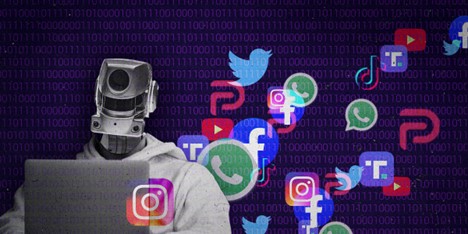
AI can significantly impact social media marketing in several ways:
- Content Personalization and Recommendation: AI can analyze a user's behavior to personalize the content they see and recommend products they might be interested in. For example, platforms like Facebook and Instagram use AI to show users posts and ads that align with their interests.
- Customer Service Bots: Many brands use AI-powered chatbots on social media for customer service. These bots can answer common questions, resolve issues, or direct users to human agents when needed. For instance, the beauty brand Sephora uses a chatbot on Facebook Messenger that can provide product recommendations and answer queries.
- Sentiment Analysis: AI can analyze social media posts and comments to gauge public sentiment towards a brand or product. This can provide valuable insights for marketing strategies and crisis management.
- Predictive Analysis: AI can predict future trends based on past data, helping brands to strategize their social media marketing. For example, they can predict the best time to post or which type of content will perform well.
- Deepfakes and Synthetic Media: Brands can use AI to create deepfakes or synthetic media for their social media marketing. This technology allows for the creation of highly realistic and customizable video content. However, this raises ethical concerns around manipulation and authenticity.
Overall, AI offers exciting opportunities for social media marketing but also poses ethical challenges that brands must navigate.
Email Marketing
Email marketing remains a powerful and effective strategy for businesses to engage with their audience and drive conversions. By leveraging email campaigns, businesses can deliver personalized messages, promotions, and updates directly to their subscribers' inboxes. This form of marketing allows for targeted segmentation and customization, ensuring recipients receive content tailored to their interests and preferences.

Hyper-Personalization: Today, it's not enough to just address recipients by their first name. Brands are personalizing content based on customers' purchase history, browsing behavior, and preferences. This can range from personalized product recommendations to dynamic content that changes based on the recipient's location, time zone, or other factors.
Automation: Email marketing automation continues to advance, with brands automating not just their email campaigns but also their segmentation, A/B testing, and data analysis.
Interactive Emails: More brands are sending interactive emails that allow recipients to take action without leaving the email, such as filling out a survey, browsing products, or even making a purchase.
Mobile Optimization: As more people use their mobile devices to check their emails, optimizing emails for mobile has become essential. This includes not just the email's design but also its content and length.
Values-Driven Messaging: Just like in social media marketing, brands are using email to communicate their values and actions on social and environmental issues.
Artificial Intelligence can significantly impact email marketing in several ways:
Predictive Personalization: AI can analyze a customer's behavior and predict their future actions, enabling brands to personalize their emails more accurately. For example, an AI algorithm might predict that a customer who recently bought running shoes from a sports retailer might be interested in workout clothes next.
Automated A/B Testing: AI can help brands test different versions of an email to see which performs better and automatically adjust future emails based on the results.
Optimal Timing: AI can predict the best time to send an email to each recipient based on their past behavior. For example, if a recipient often opens their emails in the morning, the AI can ensure they receive the email at that time.
Content Generation: AI can help generate email content, from the subject line to the body text, that is likely to engage each recipient. This can save time and improve the performance of the emails.
Here is an example of how AI can be used to predict the best time to send an email in Python:
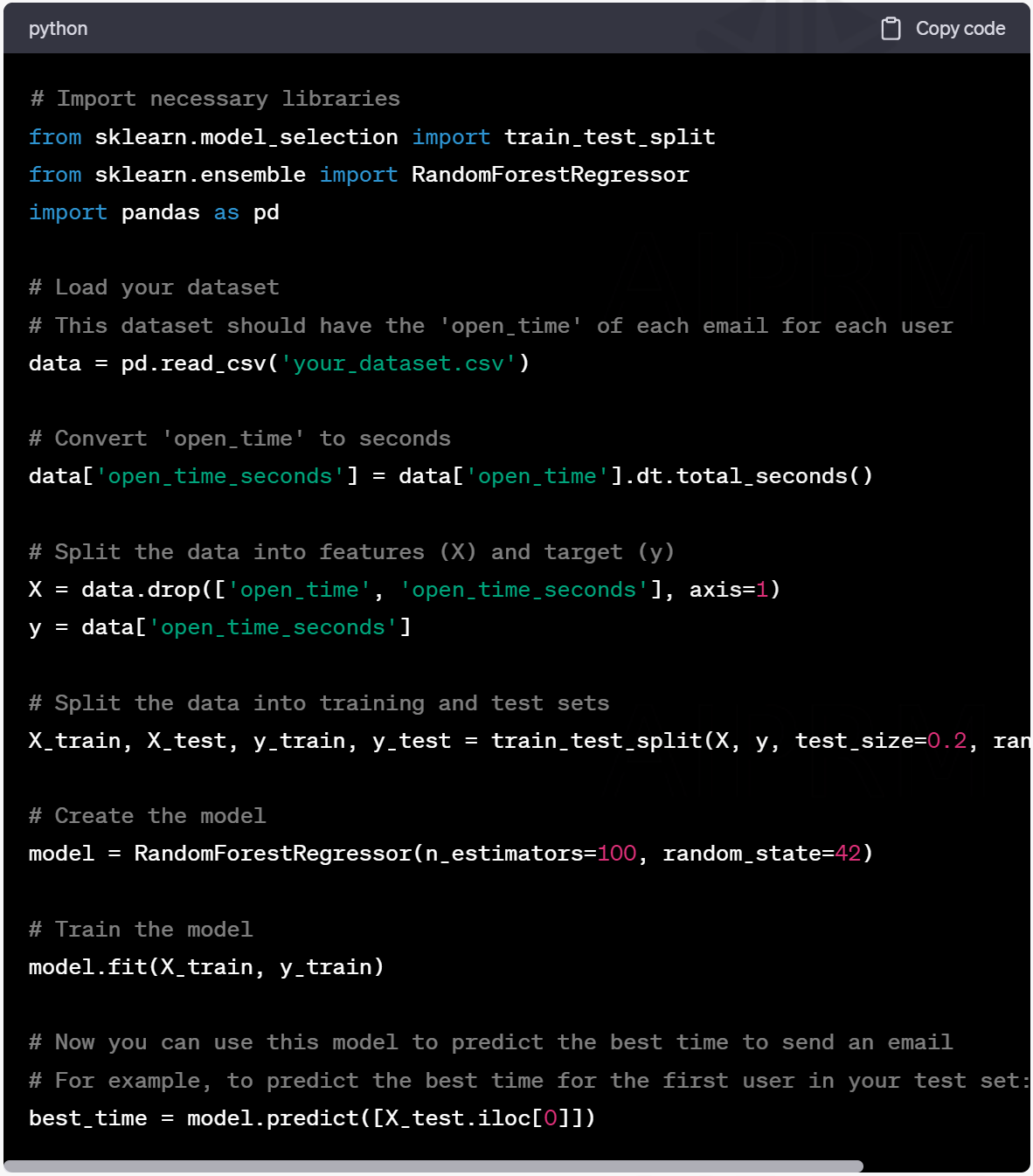
# Import necessary libraries
from sklearn.model_selection import train_test_split
from sklearn.ensemble import RandomForestRegressor
import pandas as pd
# Load your dataset
# This dataset should have the 'open_time' of each email for each user
data = pd.read_csv('your_dataset.csv')
# Convert 'open_time' to seconds
data['open_time_seconds'] = data['open_time'].dt.total_seconds()
# Split the data into features (X) and target (y)
X = data.drop(['open_time', 'open_time_seconds'], axis=1)
y = data['open_time_seconds']
# Split the data into training and test sets
X_train, X_test, y_train, y_test = train_test_split(X, y, test_size=0.2, random_state=42)
# Create the model
model = RandomForestRegressor(n_estimators=100, random_state=42)
# Train the model
model.fit(X_train, y_train)
# Now you can use this model to predict the best time to send an email
# For example, to predict the best time for the first user in your test set:
best_time = model.predict([X_test.iloc[0]])
Please note that this is a simplified example. In reality, you would need to preprocess your data and evaluate your model to ensure it is making accurate predictions.
With careful planning and strategic execution, email marketing can nurture customer relationships, increase brand loyalty, and drive sales. Businesses can continuously optimize their email marketing efforts by analyzing metrics such as open rates, click-through rates, and conversions and deliver impactful messages that resonate with their subscribers.
Content Marketing
Content marketing has emerged as a crucial component of modern marketing strategies. It involves creating and distributing valuable, relevant, and consistent content to attract and engage a target audience.
Through blog posts, articles, videos, infographics, and more, businesses can establish themselves as industry experts and build trust with their audience. Content marketing aims to provide value to consumers rather than directly promoting products or services.
By consistently delivering high-quality content that addresses the needs and interests of the audience, businesses can drive organic traffic to their website, enhance brand awareness, and ultimately generate leads and conversions. Effective content marketing involves careful planning, research, and a deep understanding of the target audience's preferences and pain points.
- Voice and Visual Search Optimization: As more folks are chatting with Alexa or Googling via images, it's important to make sure your content can be found this way.
- Interactive Content: Content letting users join in the fun is huge. Quizzes, polls, and clickable infographics are rocking because they get people more involved.
- Long-Form Content: Despite the buzz around snackable content, long-reads are still killing it. They're great for showcasing deep knowledge, boosting SEO, and offering heaps of useful info to readers.
- User-Generated Content: Content whipped up by users themselves is still a winner. It's engaging, builds trust, and after all, people love to see their own stuff featured.
- Purpose-Driven Content: Brands are getting more vocal about their values and causes they care about, which is a great way to bond with audiences who share these beliefs.
AI's playing a big role in reshaping content marketing, too:
- Content Generation: AI can churn out content super-fast and on a huge scale. For instance, OpenAI's GPT-3 can write pretty solid blog posts and social media updates. It's like having a tireless team of writers!
- Content Personalization: AI can help tailor content to suit each individual reader, based on their behavior and preferences. So, you're not just shouting into the void, but actually serving up stuff that each reader will dig.
- Predictive Analytics: AI can help predict what content will work best, based on analyzing past performance and other data. This means you can make smarter decisions about what to create next.
- SEO Optimization: AI can help optimize content for search engines, identify the right keywords, and even suggest improvements to boost your rankings.
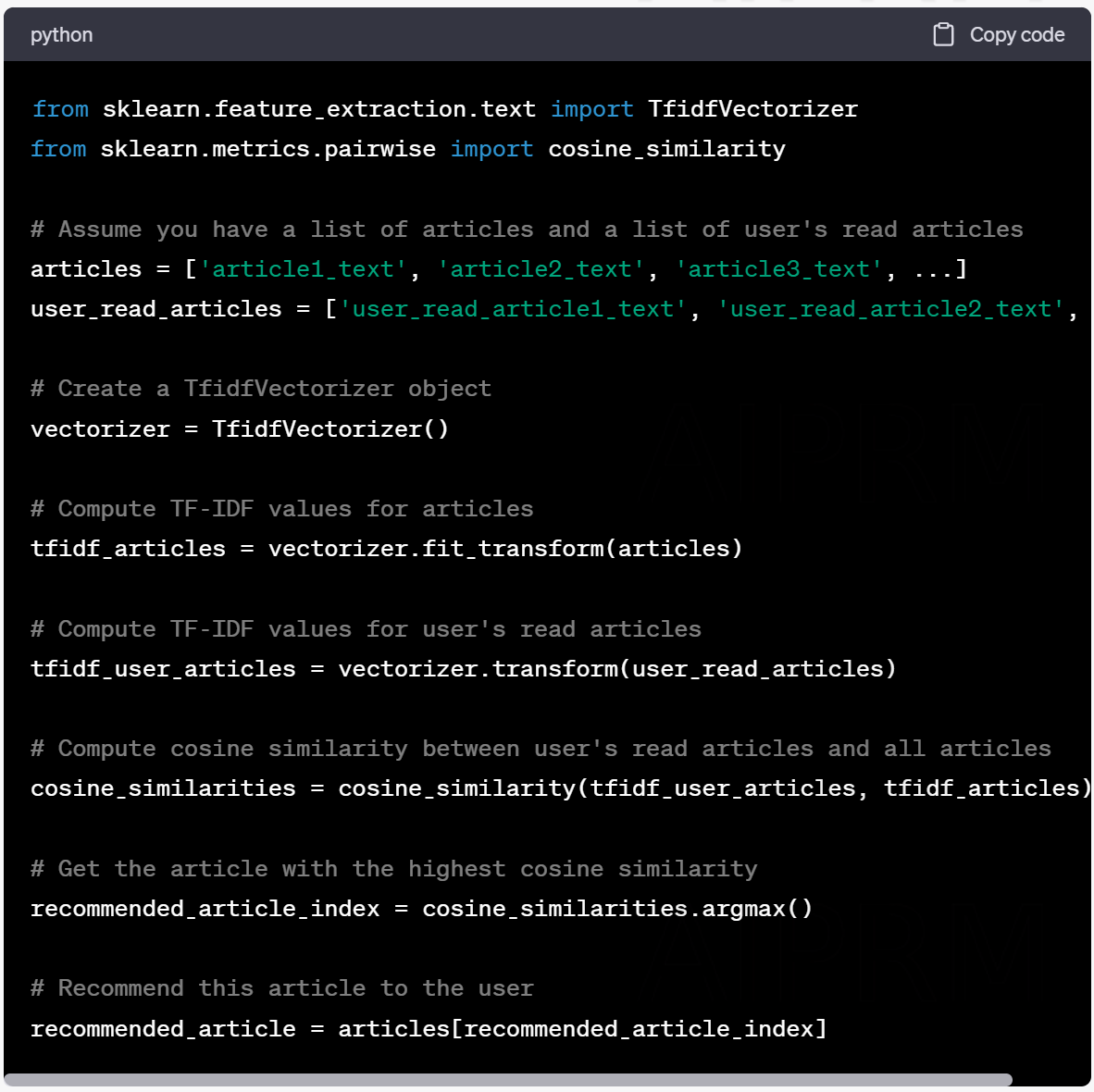
from sklearn.feature_extraction.text import TfidfVectorizer
from sklearn.metrics.pairwise import cosine_similarity
# Assume you have a list of articles and a list of user's read articles
articles = ['article1_text', 'article2_text', 'article3_text', ...]
user_read_articles = ['user_read_article1_text', 'user_read_article2_text', ...]
# Create a TfidfVectorizer object
vectorizer = TfidfVectorizer()
# Compute TF-IDF values for articles
tfidf_articles = vectorizer.fit_transform(articles)
# Compute TF-IDF values for user's read articles
tfidf_user_articles = vectorizer.transform(user_read_articles)
# Compute cosine similarity between user's read articles and all articles
cosine_similarities = cosine_similarity(tfidf_user_articles, tfidf_articles)
# Get the article with the highest cosine similarity
recommended_article_index = cosine_similarities.argmax()
# Recommend this article to the user
recommended_article = articles[recommended_article_index]
This code uses the TF-IDF (Term Frequency-Inverse Document Frequency) to convert articles into numerical vectors. Then, we use cosine similarity to find the article that is most similar to the articles the user has already read. It's a simple yet effective way to personalize content for users.
Remember, this is a fundamental example, and a real-life application would require more complex considerations, such as dealing with a larger number of articles and users, improving the recommendation algorithm, and efficiently updating recommendations as new articles are published or as the user reads more articles
Search Engine Optimization
Search Engine Optimization (SEO) is a fundamental aspect of digital marketing that focuses on improving a website's visibility and ranking in search engine results pages (SERPs). It involves optimizing various on-page and off-page elements to make a website attractive to search engines. This includes keyword research and implementation, website structure and navigation optimization, content creation and optimization, backlink building, and technical optimizations.
Effective SEO strategies aim to increase organic traffic, improve user experience, and boost website authority. By aligning with search engine algorithms and best practices, businesses can enhance their online presence, attract targeted organic traffic, and gain a competitive edge in the digital landscape. Continuous monitoring, analysis, and adaptation are crucial to staying ahead in the ever-evolving field of SEO.
Check this article for more tips on SEO: https://codedesign.org/five-local-seo-ranking-factors-everyone-must-be-mindful-about
Mobile Advertising
Mobile advertising has emerged as a dominant force in digital marketing, given the widespread use of smartphones and tablets. This form of advertising leverages mobile devices to reach and engage with the target audience effectively.
Mobile advertising can take various forms, including display ads, in-app ads, mobile video ads, and push notifications. With the ability to target specific demographics and locations, businesses can tailor their mobile ads to reach the right audience at the right time.
Mobile advertising often incorporates location-based targeting, allowing businesses to deliver personalized and contextually relevant ads. By capitalizing on the mobile platform, businesses can enhance brand awareness, drive app installations, increase website traffic, and boost conversions and sales.
- Mobile Advertising: AI is pretty much a game-changer for mobile ads. It's all about creating personal connections, right? Well, AI takes user data like browsing history, past purchases, and clicks, and uses it to make sure the right ads get in front of the right eyes at the right time. It's like having a conversation with your audience instead of just shouting at them. For example, AI might notice that someone's been searching for hiking boots and show them an ad for a sweet sale on boots in a nearby store.
- Demand-Side Platforms (DSPs): DSPs are platforms that advertisers use to buy ad placements automatically. AI is helping these platforms get super smart. They can predict which ad placements will give the most bang for the buck, saving marketers time and money. It's like having a top-notch stockbroker who knows just where to invest your ad dollars.
- Media Inventory: AI is like a personal assistant for managing media inventory. By predicting which ad spaces will be most effective and when, it can help publishers optimize their inventory. This means less waste and more profits. For instance, a publisher might notice that certain types of ads get lots of clicks during lunchtime. With AI, they could automatically make more ad spaces available during that time to maximize revenue.
Here's a simple example of how you could use Python and AI to predict which ad placements might perform best:
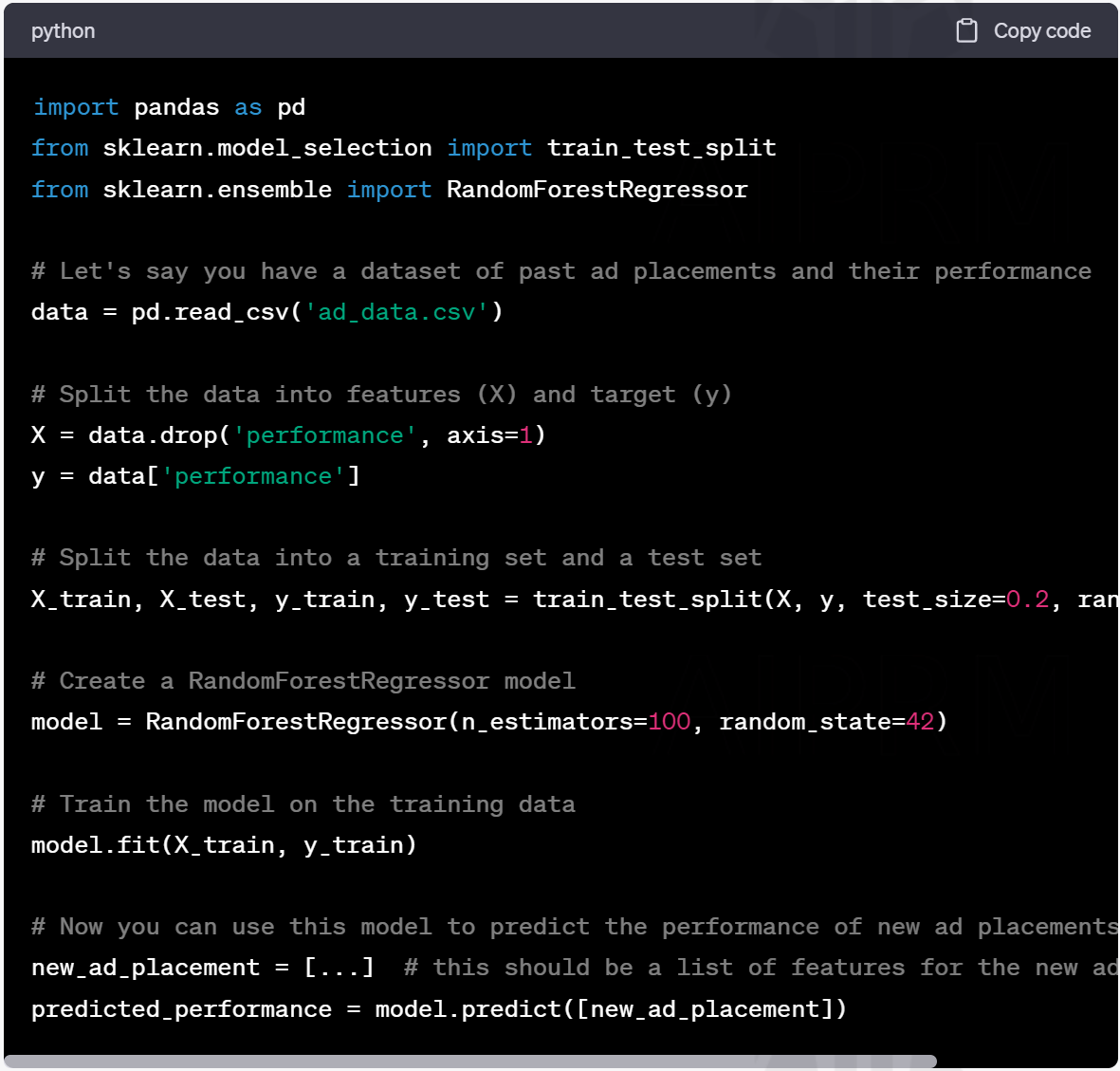
In this code, we're using a Random Forest algorithm, a type of machine learning model, to predict the performance of ad placements based on past data. So, it's like having a crystal ball that can predict the future of your ad campaign. Just keep in mind, this is a simple example. A real-life scenario would involve more complex modeling and feature engineering!
Display Advertising
Display advertising is a main form of online advertising that utilizes visually appealing banners, images, and videos to promote products or services. These ads are typically displayed on websites, mobile apps, and social media platforms. Display advertising allows businesses to capture their target audience's attention through engaging visuals and creative messaging.
Advertisers can reach specific demographics, interests, and browsing behaviors with precise targeting options. Display advertising campaigns can drive brand awareness, increase website traffic, and generate leads or conversions. Businesses can optimize their display ad campaigns to maximize their return on investment (ROI) by tracking performance metrics such as impressions, clicks, and conversions.
Display Advertising: AI is changing the game in display ads. It uses all sorts of user data, like which websites they visit or what they click on, to customize the ads that users see. So, if someone's been checking out a lot of guitar websites, they might start seeing ads for a local music shop. It's all about making the ads more relevant to the person seeing them.
Available Inventory: AI is a real whizz when it comes to managing ad inventory. By predicting which ad spaces will be the most effective, it can help to optimize the use of available inventory. So, instead of wasting space on ads that won't get clicked, AI can make sure those spaces are filled with ads that users will be interested in.
Premium Inventory: AI can also be a big help with premium inventory. These are the ad spaces that are expected to perform the best, like a banner ad on a popular website. AI can analyze tons of data to predict which premium spaces will really give advertisers the most bang for their buck. So, advertisers can feel more confident in shelling out the big bucks for premium ad space.
Here's a Python snippet that demonstrates how AI could be used to manage ad inventory:
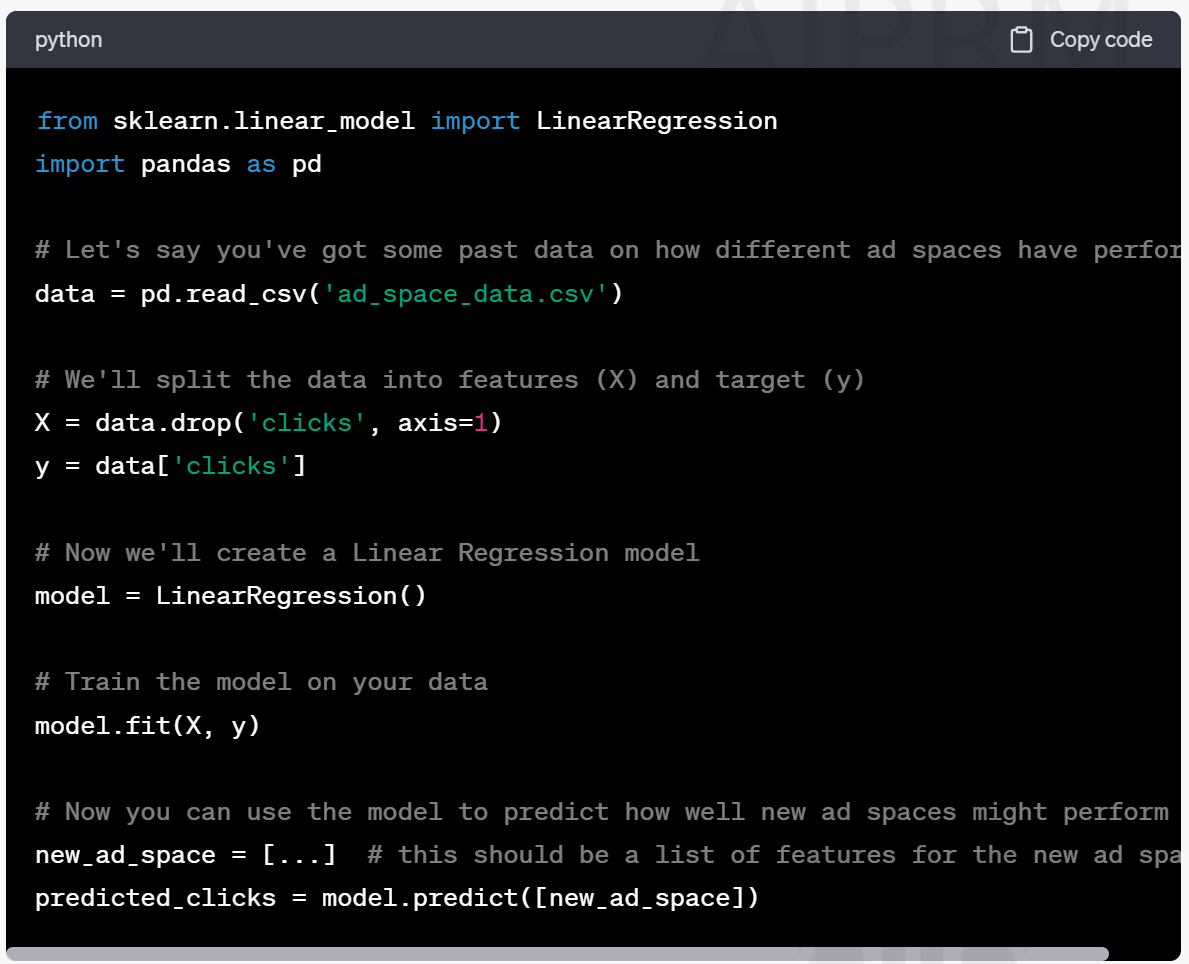
In this example, we're using a Linear Regression model to predict how many clicks different ad spaces might get. This can help in deciding how to allocate ads to different spaces. Remember, this is just a simplified example - you'd need to tailor this to your specific situation and maybe use a more complex model to get the best results.
Pay-Per-Click (PPC)

Pay-per-click (PPC) advertising is a strategic approach to digital marketing where businesses pay for their ads to be displayed on various platforms, such as search engines and social media. With paid ads, businesses can target specific keywords, demographics, and interests to reach their desired audience. This form of advertising offers immediate visibility and can drive targeted traffic to a website or landing page.
Platforms like Google Ads and Facebook Ads provide robust tools to create, manage, and optimize paid ad campaigns. By continuously monitoring and refining their ad performance, businesses can maximize their reach, increase conversions, and achieve their marketing goals effectively.
Digital marketing encompasses a wide range of strategies and techniques that businesses utilize to connect with their audience, build brand awareness, and drive conversions in the online realm.
From influencer marketing to social media marketing, email marketing, content marketing, search engine optimization, mobile advertising, and paid ads, each approach offers unique advantages and opportunities for businesses to thrive in the digital landscape. By understanding these various methods and implementing them strategically, businesses can leverage the power of digital marketing to achieve their goals and stay ahead in today's competitive market.
Google Ads: Google's already a beast when it comes to AI. It's using machine learning to automatically optimize bids, so you get the most value for your ad spend. It can also test different ad elements like headlines or descriptions and figure out which combos work best. So, imagine you're selling skateboards, Google's AI might find out that 'cool skateboards for summer' works better than 'buy skateboards online' and use that to get you more clicks.
Bing Ads: Bing's also riding the AI wave. It uses AI for things like understanding the user's intent even if they've got spelling mistakes or they're using slang in their searches. So, if a user types in 'buy sk8boards', Bing's AI will still show them your skateboard ad.
Both platforms are really leveraging AI to make advertising way more effective and efficient. It's like having a personal marketing assistant who's constantly learning and adapting to get you the best results.
On the philosophical side of things, we're seeing a shift in the way advertising works. Instead of blasting everyone with the same ads, AI is enabling a more conversational approach. It's all about understanding what the individual user needs or wants, and offering that to them. But this also raises questions about privacy and how much data we're comfortable sharing in order to get these personalized ads.
Here's a simple Python code snippet that illustrates how AI might be used to optimize ad performance:
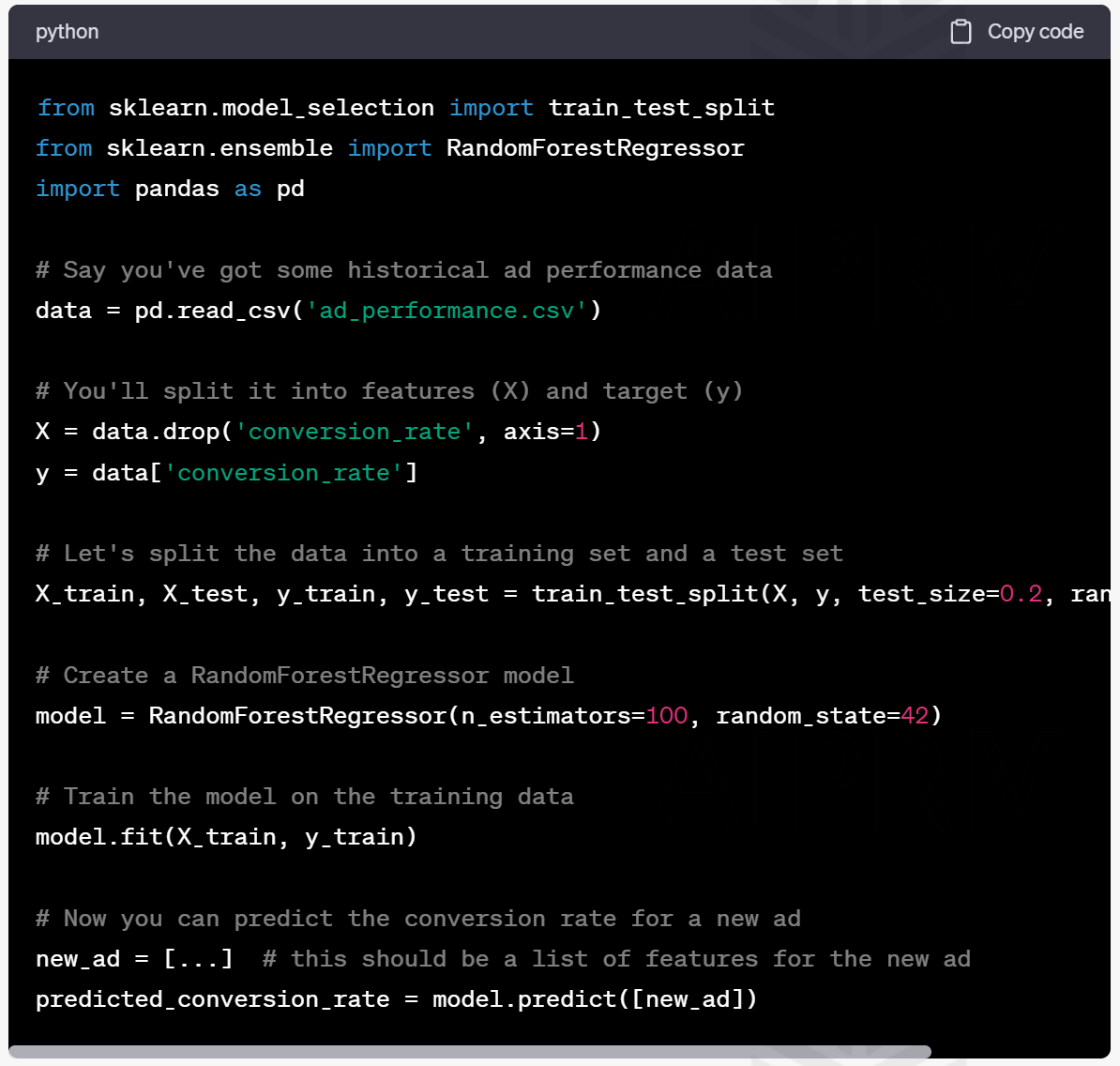
In this code, we're using a machine learning model (Random Forest Regressor) to predict the conversion rate for a new ad based on historical data. So, you could use this to figure out which ads are likely to perform best and focus your budget on those.
But remember, this is just a simplified example - the real deal would involve way more complex models and a whole lot more data!
Here's an example of a simple recommendation system built with JavaScript using a library called Simple-recommender. This can be used to recommend products or ads to a user based on their past behavior:
First, install the simple-recommender library via npm (Node Package Manager) if you haven't already.

Then, you can use the library in your JavaScript code like this:
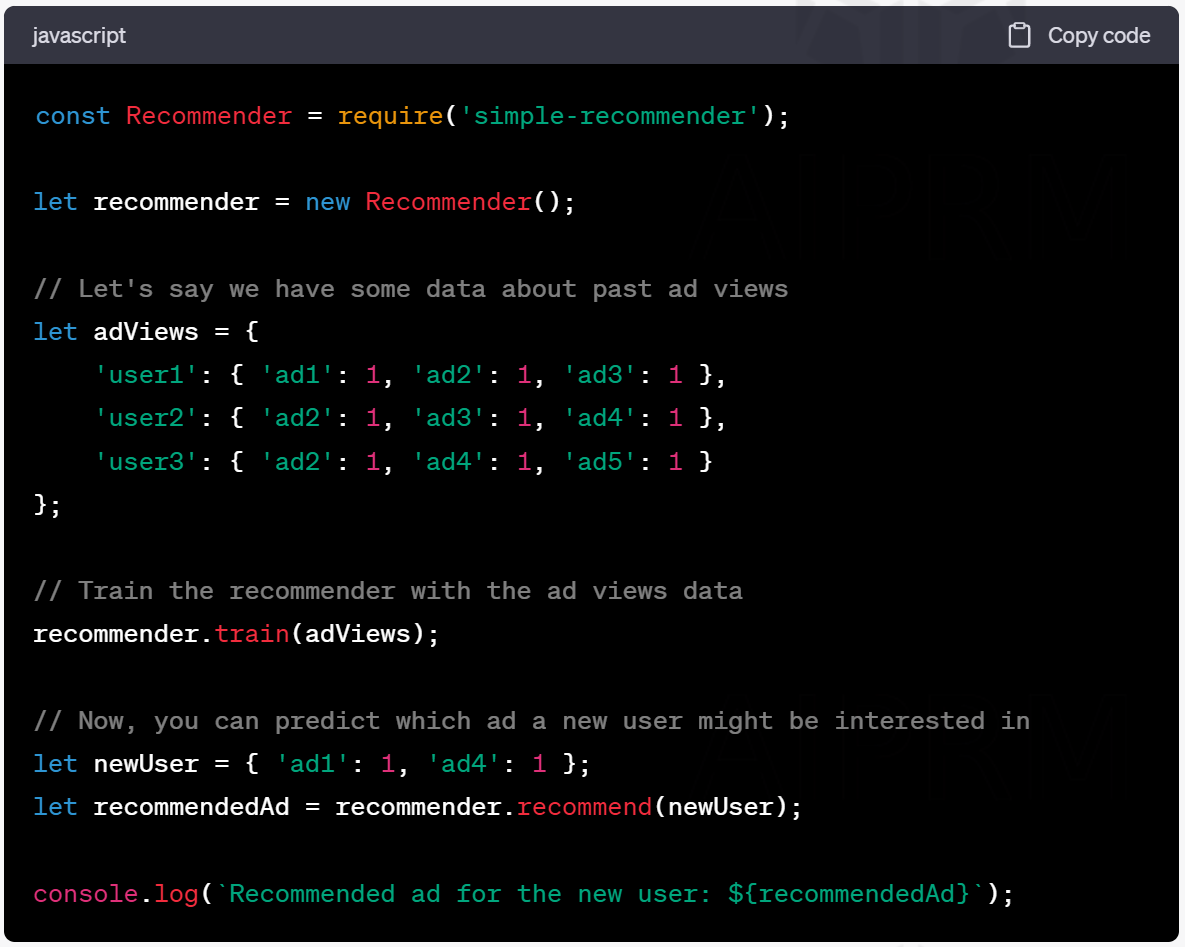
const Recommender = require('simple-recommender');
let recommender = new Recommender();
// Let's say we have some data about past ad views
let adViews = {
'user1': { 'ad1': 1, 'ad2': 1, 'ad3': 1 },
'user2': { 'ad2': 1, 'ad3': 1, 'ad4': 1 },
'user3': { 'ad2': 1, 'ad4': 1, 'ad5': 1 }
};
// Train the recommender with the ad views data
recommender.train(adViews);
// Now, you can predict which ad a new user might be interested in
let newUser = { 'ad1': 1, 'ad4': 1 };
let recommendedAd = recommender.recommend(newUser);
console.log(`Recommended ad for the new user: ${recommendedAd}`);
In this example, we use the simple-recommender library to create a recommendation model based on past ad views. Each user has a dictionary of ads they have viewed. After training the model with this data, we can recommend an ad for a new user based on their viewing history.
Remember, this is a basic example and a real-life application would require a more sophisticated recommendation algorithm, especially when dealing with large-scale data. Also, the user-ad views would ideally be gathered and updated dynamically.
Contact us
Are you ready to take your business to the next level in the digital world? Then look no further than CodeDesign.org! We're an innovative digital marketing agency, armed with a team of seasoned professionals passionate about everything digital. WE'VE GOT YOU COVERED from SEO to social media marketing, PPC, content marketing, and everything in between. We take pride in crafting unique, effective strategies tailored to your business needs, ensuring your brand reaches and resonates with your target audience.
But don't just take our word for it, experience it yourself! We believe in building relationships based on trust and results. So, why wait? Let's get the ball rolling and achieve those business goals together. Contact us today at CodeDesign.org and let's start mapping out your digital success story. We can't wait to hear from you and learn more about how we can collaborate to grow your brand and impact in the digital space.
FAQS - Frequently Asked Questions
What are the key types of online marketing?
The key types of online marketing include search engine optimization (SEO), pay-per-click (PPC) advertising, social media marketing, content marketing, email marketing, influencer marketing, mobile advertising, and display advertising. Each type serves different purposes but collectively they aim to increase visibility, engagement, and conversions for businesses in the digital space. These strategies are often used in conjunction to create a comprehensive online marketing approach that reaches potential customers at various stages of the buyer's journey.
How can influencer marketing enhance brand recognition?
Influencer marketing enhances brand recognition by leveraging the followers and credibility of influencers in various niches. When influencers recommend or feature a brand's products or services to their audience, it not only exposes the brand to a broader audience but also confers upon it a level of trust and authenticity through the influencer's endorsement. This strategy can significantly boost brand awareness and perception, especially among targeted demographic groups that are difficult to reach through traditional advertising channels.
What role does social media marketing play in reaching target audiences?
Social media marketing plays a pivotal role in reaching target audiences by allowing brands to engage directly with consumers where they spend a significant amount of their time. Platforms like Facebook, Instagram, Twitter, and LinkedIn offer unique opportunities for brands to share content, interact with users, and participate in conversations, fostering community and brand loyalty. Through targeted ads and organic content, social media marketing enables businesses to reach specific demographic groups, track engagement, and adjust strategies in real time for maximum impact.
Why is email marketing considered effective for engaging with audiences?
Email marketing is considered effective for engaging with audiences due to its direct and personalized approach. It allows businesses to send tailored messages to specific segments of their audience based on interests, behaviors, and past interactions. With high levels of personalization and segmentation, email marketing can significantly increase engagement rates, promote loyalty, and drive conversions. Additionally, email is a widely used communication tool, ensuring broad reach and the ability to maintain long-term relationships with customers.
What makes content marketing crucial for businesses?
Content marketing is crucial for businesses because it helps build trust, establish brand authority, and improve online visibility. By creating and distributing valuable, relevant, and consistent content, businesses can attract and retain a clearly defined audience, ultimately driving profitable customer action. Content marketing supports other digital marketing strategies, such as SEO and social media marketing, by providing quality material that can be optimized for search engines and shared across social platforms, thereby enhancing engagement and lead generation efforts.
How does search engine optimization impact online visibility?
Search engine optimization (SEO) impacts online visibility by improving a website's ranking in search engine results pages (SERPs) for relevant keywords. This is crucial because higher rankings increase the likelihood of users clicking through to the website. SEO involves optimizing website content, structure, and technical aspects to make it more attractive to search engines. Effective SEO strategies lead to increased organic traffic, which is valuable for building awareness, credibility, and engagement with potential customers.
In what ways does mobile advertising target audiences?
Mobile advertising targets audiences through ads that are specifically designed for mobile devices, such as smartphones and tablets. This can include in-app ads, mobile-optimized web banners, video ads, and SMS marketing. Mobile advertising allows for precise targeting based on location, app usage, browsing habits, and demographic information, offering personalized engagement with users. The ubiquity of mobile devices and the increasing amount of time people spend on them make mobile advertising a critical component of digital marketing strategies for reaching consumers effectively.
How do display ads contribute to online marketing strategies?
Display ads contribute to online marketing strategies by providing visual advertising spaces across websites, social media platforms, and apps. These ads can range from banners and interstitials to video ads and rich media. Display advertising supports brand awareness, retargeting efforts, and direct response campaigns by placing highly visible ads in front of targeted audiences across the web. The use of creative, engaging visuals in display ads captures attention and encourages interaction, making them a powerful tool for driving traffic and conversions.
What are the advantages of pay-per-click advertising?
The advantages of pay-per-click (PPC) advertising include immediate visibility in search engine results, precise targeting capabilities, and a cost-effective pricing model where advertisers only pay when their ad is clicked. PPC campaigns offer quick results, measurable ROI, and flexibility in budgeting and optimization. They allow advertisers to reach potential customers at the exact moment they're searching for related products or services, making PPC a highly effective way to drive traffic, generate leads, and increase sales.
How is AI influencing online marketing strategies?
AI is influencing online marketing strategies by providing advanced tools and insights for personalization, automation, and data analysis. AI technologies can predict customer behavior, automate repetitive tasks, optimize ad campaigns in real time, and personalize content and recommendations at scale. This leads to more efficient and effective marketing efforts, improved customer experiences, and higher conversion rates. AI's ability to process and analyze large volumes of data also helps marketers make informed decisions and identify new opportunities for engagement and growth.

About Bruno GavinoBruno Gavino is the CEO and partner of Codedesign, a digital marketing agency with a strong international presence. Based in Lisbon, Portugal, with offices in Boston, Singapore, and Manchester (UK) Codedesign has been recognized as one of the top interactive agencies and eCommerce agencies. Awarded Top B2B Company in Europe and Top B2C company in retail, Codedesign aims to foster personal relationships with clients and create a positive work environment for its team. He emphasizes the need for digital agencies to focus on data optimization and performance to meet the increasingly results-driven demands of clients. His experience in digital marketing, combined with a unique background that includes engineering and data, contributes to his effective and multifaceted leadership style. |

About CodedesignCodedesign is a digital marketing agency with a strong multicultural and international presence, offering expert services in digital marketing. Our digital agency in Lisbon, Boston, and Manchester enables us to provide market-ready strategies that suit a wide range of clients across the globe (both B2B and B2C). We specialize in creating impactful online experiences, focusing on making your digital presence strong and efficient. Our approach is straightforward and effective, ensuring that every client receives a personalized service that truly meets their needs. Our digital agency is committed to using the latest data and technology to help your business stand out. Whether you're looking to increase your online visibility, connect better with your audience, get more leads, or grow your online sales. For more information, read our Digital Strategy Blog or to start your journey with us, please feel free to contact us. |
CodeDesign is leading:
- Digital Agency
- Digital Marketing Agency
- Digital Ecommerce Agency
- Amazon Marketing Agency
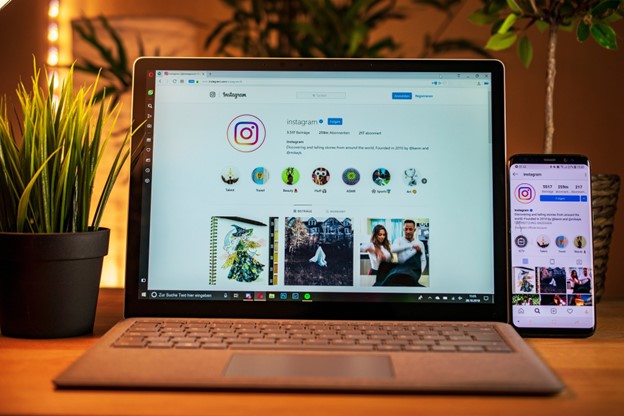

Add comment ×